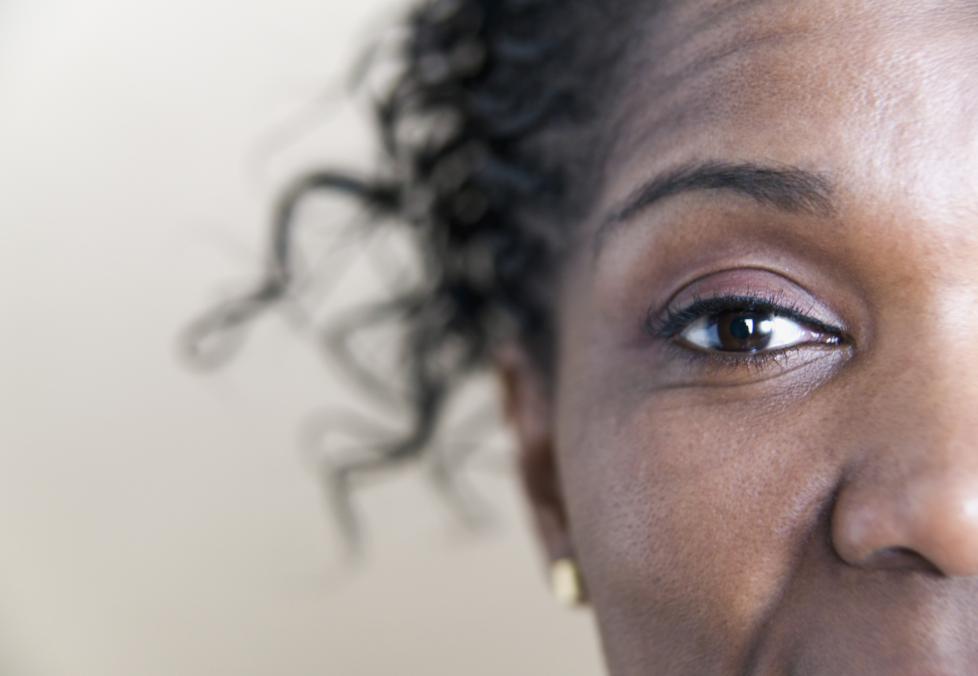
Book an eye exam, take advantage of our popular two-pair offers, restock your contact lenses — or all three!
Everything you need to know to take care of your eyes — for life.
More than just the windows to your soul, your eyes offer a view of the rest of your well-being too.

Pop quiz: What do high blood pressure, multiple sclerosis, diabetes, and thyroid disease have in common?
Answer: They can all be spotted early by your optometrist. That’s right—your eyes can reveal a lot about your overall health.
It makes sense to call the eye doctor when you’re having trouble seeing. But that simple check does more than catch vision problems. It can also pick up on changes in your tissues, nerves, and blood vessels that may signal health problems far from the eyes themselves.
What’s more, your eyes are the only place doctors can look at to see what’s going on inside your body without cutting you open.
"We are checking so much more than just your vision prescription, we are checking your overall eye health, which tells us about your overall health, as well," says Mollie Veteto, O.D., a Memphis–based optometrist who is with Nashville Regional Eye Care inside America's Best Contacts & Eyeglasses.

Book an eye exam, take advantage of our popular two-pair offers, restock your contact lenses — or all three!
What an optometrist sees can help you get a jump on seeing a specialist, taking preventive measures, or getting early treatment.
Here’s what your optometrist might pick up on when they examine your eyes.
1. High blood pressure. Hypertension often goes undetected, but twists and kinks in the tiny blood vessels of the retina can be early warning signs.
2. High cholesterol. In younger adults, a dingy gray ring around your cornea may signal high cholesterol and elevated triglycerides, two markers that put you at a higher risk of a heart attack or stroke. In older adults, this coloration is common but is not related to high cholesterol.
3. Diabetes. Many people have diabetes without knowing it. In fact, some of the telltale signs—including damage to the retina and blood vessels—show up in eye tissue before being revealed in a blood sugar test. Tiny blood vessels in your eye can rupture and leak yellow-tinged fluid into the retina, which is a red flag for diabetic retinopathy, a condition that can lead to vision loss if it goes untreated for too long.
4. Certain cancers. Sores and disfigurations on the eyelid or near the lash line could be a type of skin cancer known as basal cell carcinoma. A change in the color of your eye, dark spots in the back of the eye, or other tiny defects on your iris can sometimes indicate a different type of cancer known as ocular melanoma.
5. Thyroid disease. Enlarged, even bulging eyes are a common sign of an overactive thyroid.
6. Autoimmune diseases. Inflammation spotted in the eyes or optic nerves and weak, droopy eyelids could be early signs of lupus, multiple sclerosis, or other autoimmune disorders.
Plus other health conditions. Asymmetrical or irregularly shaped pupils, weak eyelids, and inflammation or damage to the blood vessels in your eyes can all indicate that something might be amiss.
It could be something as routine as the onset of menopause or that you’re developing dry eye, but it could also point to something like an aneurysm or brain hemorrhage. Dr. Veteto says optometrists have seen everything.
When your eye doctor asks about your personal and family health history, be honest. “You may not think there’s a connection between your grandma’s diabetes or breast cancer and your personal eye health, but those clues tell us to look closer when we’re examining you,” says Dr. Veteto.
The bottom line is that eyes really do provide a good picture of overall health. Better health is what we’re all after, she says, and a simple eye exam is one tool that can help.